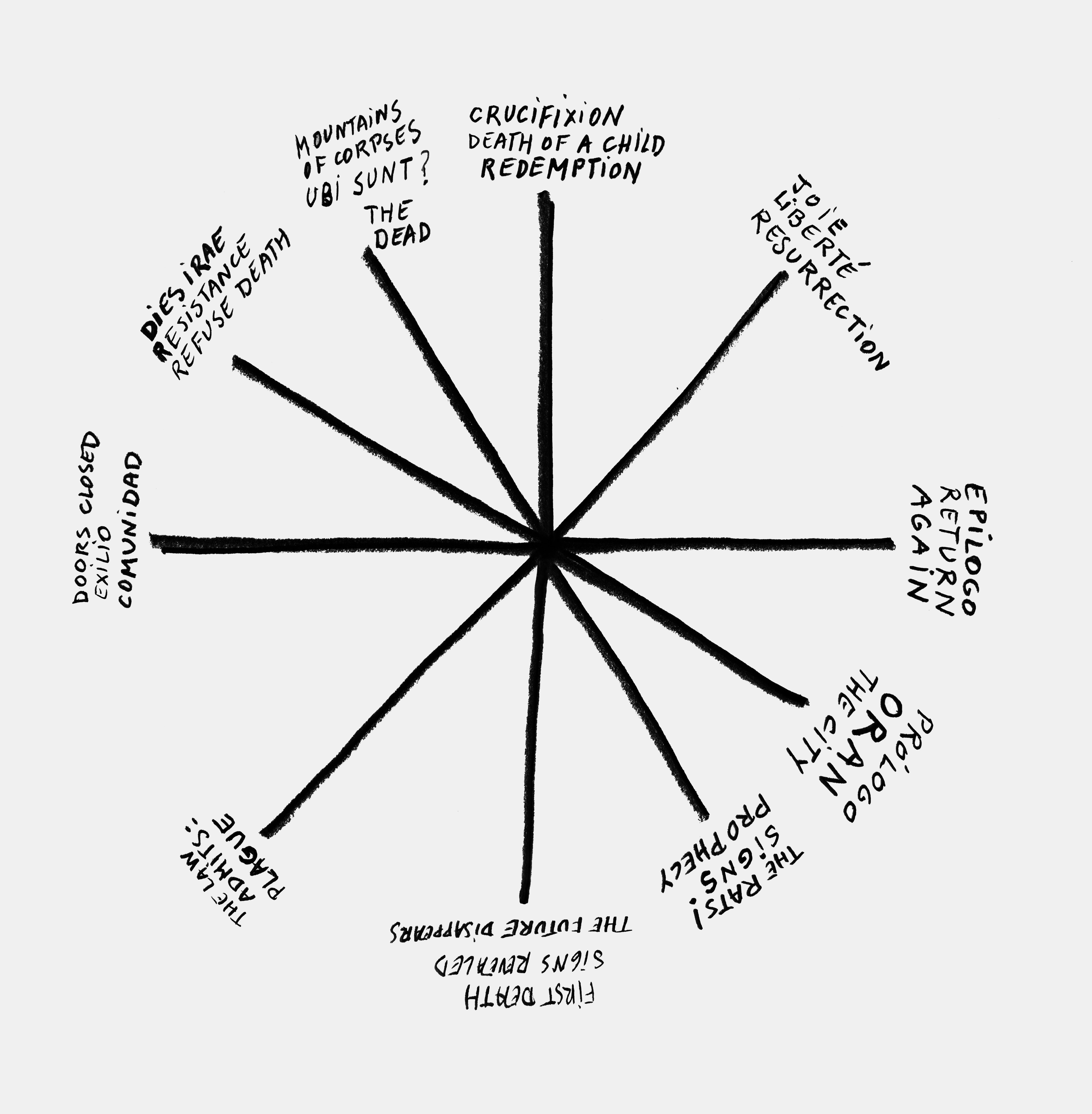What is at play when history is written? The most defining moments in a nation’s history often unfold in a few minutes, are decided by a handful of people, behind closed doors, removed from public institutions or momentous historic speeches in public arenas. Rose Hammer is a collective artistic persona who has set out to draw attention to this phenomenon, specifically those key moments that have shaped the Norway of today and its possible futures. For osloBIENNALEN Rose Hammer will produce a series of performances – entitled National Episodes – in the Brechtian Lehrstücke (lesson play) tradition. These will revisit low-key but transcendent episodes in Norwegian history, such as the mythical meetings that took place at Grini prison camp Barrack 12 during the Nazi occupation of Norway. It is a historical fact that networks of political prisoners during the WWII shaped what Norway has become today. Hence the title of this first National Episode: Grini and the Futures of Norway. After the Grini narrative, Rose Hammer will move on to other episodes, both mythical and historical.
The idea of National Episodes originates in an analysis made of the novel “The Plague” by Camus (1947), and its opera adaptation “The Plague” by Roberto Gerhard (1965). A narrative structure was deduced from these allegorical stories, and their emphasis in the city as a collective voice, a microcosmos of mankind. This narrative structure could potentially be applied to very different historical, social, political situations and events – different as they were, they could be told using an identical narrative structure.

And from that, the idea came that such a narrative/ dramaturgical structure could be applied to some key events of Norwegian history. So came the idea of National Episodes: to write and perform a series of short theatrical pieces, that would, in the Brechtian Lehrstücke tradition, speak to a wide audience about some key, pivotal moments of the history of Norway. The idea of course is not to go for some epic treatment, but rather on the contrary, to construct these pivotal moments, again following traditions such as Brecht and even Genet, through very domestic, indoor scenes, easy to play and stage. Perhaps we should note that a big part of our research goes into the tradition of speech choir and socialist youth’s plays, popular in the Norwegian workers’ movement.
We are bringing together a small amateur theatre group, mostly made of those being part of the authorial group persona Rose Hammer. These National Episodes will be a series, since it is the intention of our work in the biennial to be extended in time – we will produce several episodes.
The first episode one is probably very representative of our intentions. We will construct it from an anecdote told by Johan Galtung in a radio show recently. Galtung mentions Griniforliket (“The Grini compromise”), a meeting between WWII POW representatives of the Labour party and the conservative party, that allegedly took place in barrack number 12 in the spring of 1945, at the Grini detention camp. Here, shortly before the German capitulation, the political future of Norway was mapped out. According to Galtung, a deal was struck where the Labour party would let Norway enter into an alliance with the Western powers (rather than turning toward the Soviet sphere of influence). In return the conservatives agreed not to block the establishing of a welfare state (built on socialist principles).
The meeting strikes us as a crucial – and very concrete – turning point in Norwegian history. We imagine a group of people around a table, contemplating all the possible futures of Norway, and choosing one.
